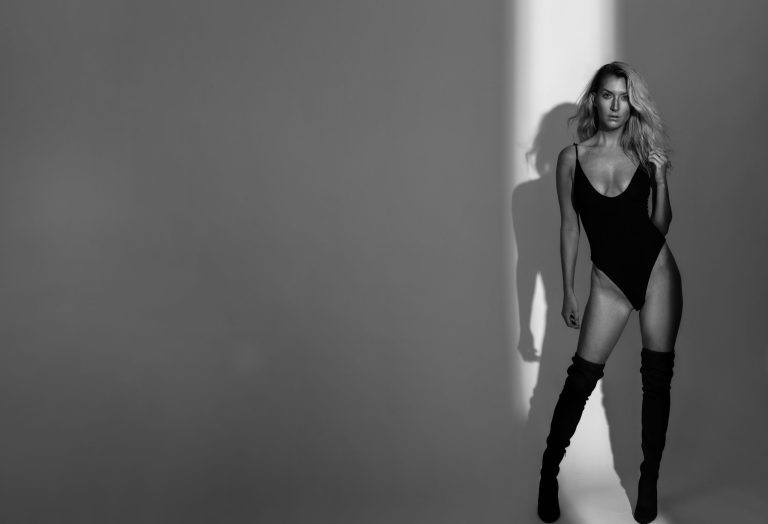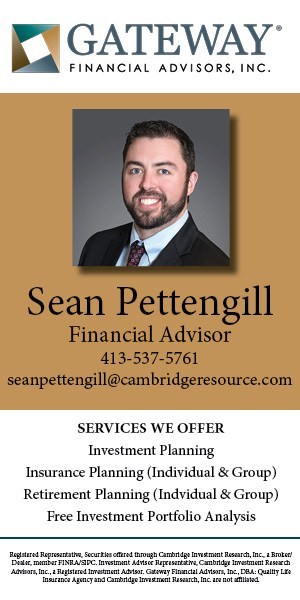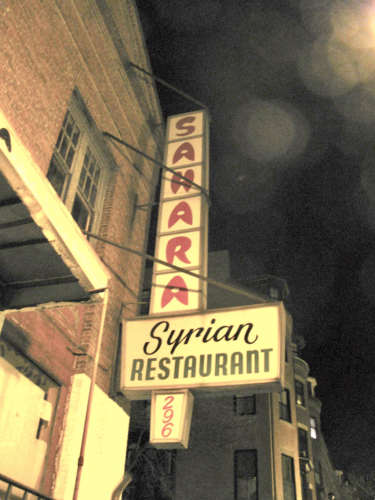
The Sahara Syrian Restaurant, deep in the South End on Shawmut Ave at Waltham St, has now been closed and vacant for 52 years. Originally a German Lutheran church, the 1847 structure became a Syrian restaurant/social club early last century, as Syrians poured into the area. Chinatown was once called Syriatown, but subsequently Syrians migrated to the South End.
The owners, have a corner store nearby and use the building for storage. There are no plans for the sale of the property now worth millions to developers. But this story is not about the Sahara, but the Sahara as a metaphor for an immigrant group that arrived in Boston, settled and assimilated. This is an American story.
When you need a quart of milk, a pack of smokes or today’s paper you likely run to the nearest 7-11, White Hen, Tedeschi’s, or any of the chains that have replaced an American tradition. They may carry the goods you need, but chances are you won’t know from whom you are buying. The store you now use has replaced the one that used to be down on the corner; the Mom and Pop shop.
Usually owned and run by a single family with three generations contributing to the work load, the Mom & Pop shop was more than a place to grab a pack of smokes. It was a place to get caught up on what was happening around the way. It was a place to see your neighbors and swap lies. It was a place to get an advance on the weekly paycheck.
And if you weren’t prompt with the payback on payday it was usually interest free. You probably even cashed that check right there. This writer knows. His own grandfather, once called The Godfather of Ball Square, was known for his elaborate loan system, generous to the quick payback customer, less so to those who dragged it out.
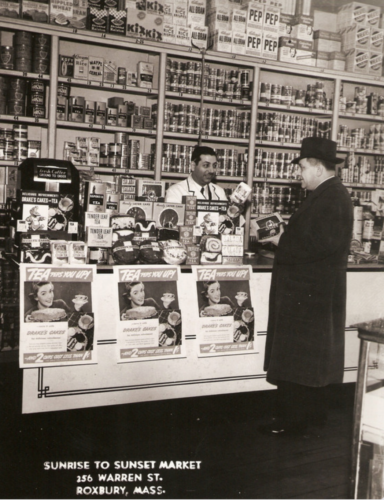
This is the story of an immigrant named Russell Dikmak (behind the counter above) who came to this country through Ellis Island from Damascus, Syria at the age of 13 and joined several of his brothers here in the South End area in the early part of the 1900s.
In those days they resided in the Syrian Neighborhood in the South End near Shawmut Ave, where there may still be a small Syrian goods store to this day. The Dikmaks owned the Sunrise To Sunset Market on Warren St. Later it was to be renamed the Sunrise To Midnight Market.
Dikmak himself then moved to Roxbury, started raising a family, and opened and ran the Sunrise to Midnight Market with several of his brothers. They continued to grow the business throughout the Depression and always had access to rare items like butter and sugar and other things that were short in supply during that era.
His family never went without and ate well, but he would share these items with others in the community during the shortages. He was a hunter, avid gardener, and a gourmet cook, embracing American foods and recipes. You could find him on his days off entertaining and making great dishes for family and friends. He lived back then as many do now, in a sustainable way, picking fresh ingredients and herbs right from his garden, jarring pickles, canning tomatoes and other produce at the end of each season.
Russell Dikmak’s store grew within the community, and he not only sold classic S.S. Pierce products (Boston area favorites), but produce, game and other meats, Drakes Cakes and sundries. Dikmak also had a Soda Fountain and lunch counter. Try finding that in a 7-11.
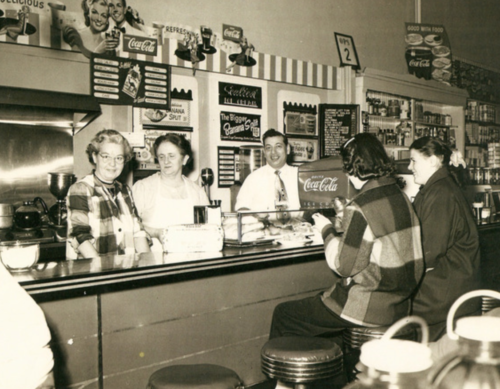
He and his brothers, family, and friends worked there for years, until the era of strip malls and larger grocery stores prompted their decision to retire from the business and sell the store. Dikmak, to this day is the mentor in his family for great foods, cooking, gardening and enjoying the pure ingredients the family always had access to.
He was someone who always gave back to the community. He is the personification of a Bostonian and urban disappearing America. A slice of apple pie and a coffee regular in a cup and saucer please.
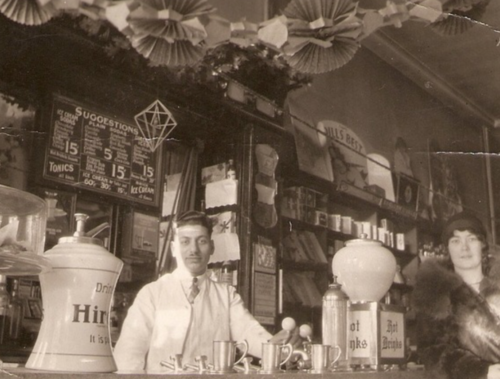
***
Jim Botticelli administers the popular Facebook and Instagram pages Dirty Old Boston. He is the author of Dirty Old Boston: Four Decades of a City In Transition available from local independent bookstores.







